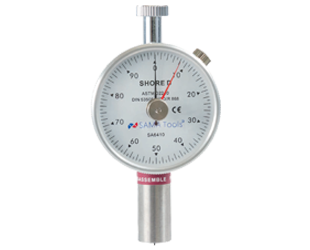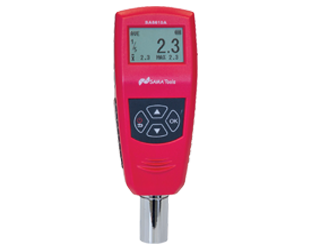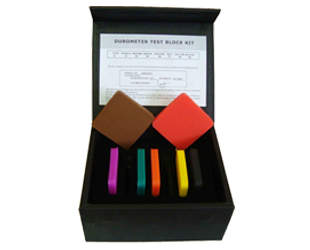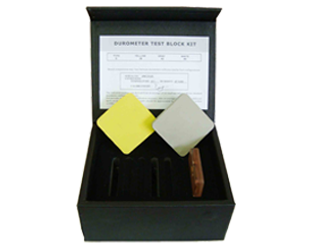DOWNLOAD
Shore hardness testers
Analog Shore hardness tester
Non-destructive testing instruments used for measuring the hardness of rubber, plastic, sponges and similar materials. Shore A is the most used scale in hardness measurement of thermoplastic elastomers. Over 90 Shore A it is recommended to use Shore D, provided with a more sharpened indenter. Under 5 Shore A it is recommended to use Shore E. Shore hardness testers are indicated for quality control in rubber, plastics and seals production.
Operation:
The hardness tester needs to be pressed on the analysed material making penetrate the indenter (which will leave a small imprint) in order to measure the hardness of the material. At this point it will be possible to read the measured hardness value on the quadrant. The hardness tester always leaves an imprint, so it has to be used on areas where it will not disturb, otherwise you can use the device on specific blocks made of the same material to be tested.
Features:
• Small size and high quality materials make this instrument an ideal device to be used both in laboratory and on field.
• Compliant with standards: ISO 868, ISO 7619−1, ISO 7267−2, ASTM D2240, ISO/NP 48−7, NF T51−123, FIAT 50411.
• The Shore hardness tester is an instrument that measures the hardness of plastic materials. Each type of tester refers to a certain scale of values, in this case it is the Shore (A, D or E) scale and it is able to measure values from 0 to 100.
• The Shore A scale is used to measure the hardness of materials like: rubber, elastomers, neoprene, silicone and vinyl; it can be also used for soft plastic, felt, leather and similar materials.
• The Shore D scale is used to measure materials like: plastic, formica, epoxides and plexiglas.
• The Shore E scale is used to measure materials like sponges and foam rubber.
Standard supply:
• Main unit
• Metal reference block
• Carrying case
• Operating manual
Digital Shore hardness tester
The digital Shore hardness testers share the operating principle with mechanical models, assuring a more accurate reading and the possibility to have the measurements average at the same time. The different hardness scales, the memories and the included software make it a high professional instrument. The main field of use is the basic production sector and in general all the mainteinance needs and quality control about plastic materials and their derivatives.
Features:
• High accuracy and compliance with international standards: ISO 868, ISO 7619−1, ISO 7267−2, ASTM D2240, ISO/NP 48−7, NF T51−123, FIAT 50411.
• They are non-destructive testing instruments: on tested materials they leave only a small imprint.
• Small size and ergonomic design which assure the portability and the possibility to carry out measurements even in difficult conditions.
• Large LCD display for clear data reading.
• Possibility of statistic processing (average value).
• Fast and simple calibration.
• Auto−off for energy saving.
• Suitable for use on a stand.
Standard supply:
• Main unit
• Metal reference block
• Carrying case
• Operating manual
Optional accessories:
• Cable and software
• Shore A / D reference test blocks
• Calibration certificate









